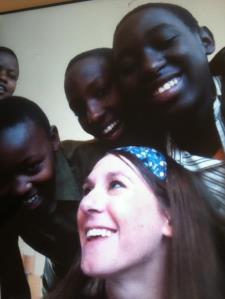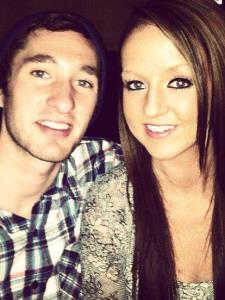
Virginia W.
asked • 01/08/13what do the glasses represent in the Great Gatsby?
the glasses on the billboard
8 Answers By Expert Tutors

Bill F. answered • 01/08/13
Experienced Teacher & Tutor in Round Rock, TX
Eyes + glasses means that he watches over everything that goes on around in the valley. His glasses have yellow rims which symbolize being corrupt, in two different ways: all he sees is corruptness, and he sees through the eyes of someone who is corrupt.
Nicole T. answered • 09/11/21
Patient English Grad for HS Tutoring in English and History
I believe that all answers above pretty much hit the nail on the head. Although, I would also like to add that this text took place during the “Roaring 20’s.” It’s a decaying billboard over a decaying wasteland between the metro of NYC and the utter perfection that is the “old money” of the Eggs. I believe it hasn’t been stated that this is another example of Fitzgerald’s criticism of wealth, power, and the ultimate drive to attain “The American Dream,” no matter the cost.

Lisa H. answered • 02/05/20
English Tutor, Literary Analysis & Essay Writing
The glasses on the omnipresent billboard of Dr. T.J Ekleburg bear witness to pivotal plot points in Gatsby and are symbolic of the larger voyeuristic theme in the text. Ekelburg's eyes witness Tom's adultery, his mis-use of Wilson's trust and the ultimate demise of Myrtle at the hand of Daisy. Gatsby is also a voyeur in his purchase of the grand home perfectly situated to watch over Daisy, represented by the green light at the end of her dock. Rather than mingling at his own parties, he watches others having fun, while waiting for the day when Daisy finally shows. The main role of Nick is to watch the other characters engage with one another, Gatsby pining for Daisy, Tom's affair with Myrtle, Daisy's affection for Gatsby. Nick is a watcher, much like the eyes of Dr. T.J. Ekleburg himself.

Joseph F. answered • 01/11/13
Experienced writing instructor, journalist, published author
Consider what glasses do: sharpen images; provide clearer focus; even changes the appearance of the wearer. Consider, too, where the billboard displaying the ad is located overlooking the valley of ashes, almost God-like. Focus on the entire scene when determining what it means, not just an isolated image. There are a variety of motifs from which to choose: corruption, dishonesty, power, desire. See which one works for you.

Valerie F. answered • 01/09/13
You CAN, I will help
The GOLD or YELLOW rim of the eyeglasses in The Great Gatsby represent the desire for wealth and materialistic things - specifically gained through corruption. The presence of glasses represents moral blindness.
A forgotten billboard depicting eyeglasses, placed long ago by some enterprising optometrist, T.G. Eckleberg, overlooks "The Valley of Ashes" and is a major symbol in The Great Gatsby. The billboard represents the crass commercialism that has come to symbolize the corruption of the American Dream. George Wilson, the garage owner, in his deluded state, mistakes the billboard for the eyes of God.

Elizabeth D. answered • 09/20/13
Ahh English: the comprehension, reading, writing, editing, and grammar

Kevin S. answered • 07/31/13
DePaul English Major offering expertise in writing
The glasses represent a way of looking at things with clarity. Much of the events in the story are unreliably narrated by Nick Carraway, who is often intoxicated or swayed by the materialistic desires of those around him. Think of what a lens does, it allows you to view things. The glasses provide an "all seeing eye" over the world of the story. Consider not what Nick Carraway is seeing, but what these glasses see.
Still looking for help? Get the right answer, fast.
Get a free answer to a quick problem.
Most questions answered within 4 hours.
OR
Choose an expert and meet online. No packages or subscriptions, pay only for the time you need.






Julie M.
07/21/23